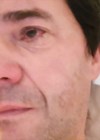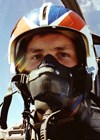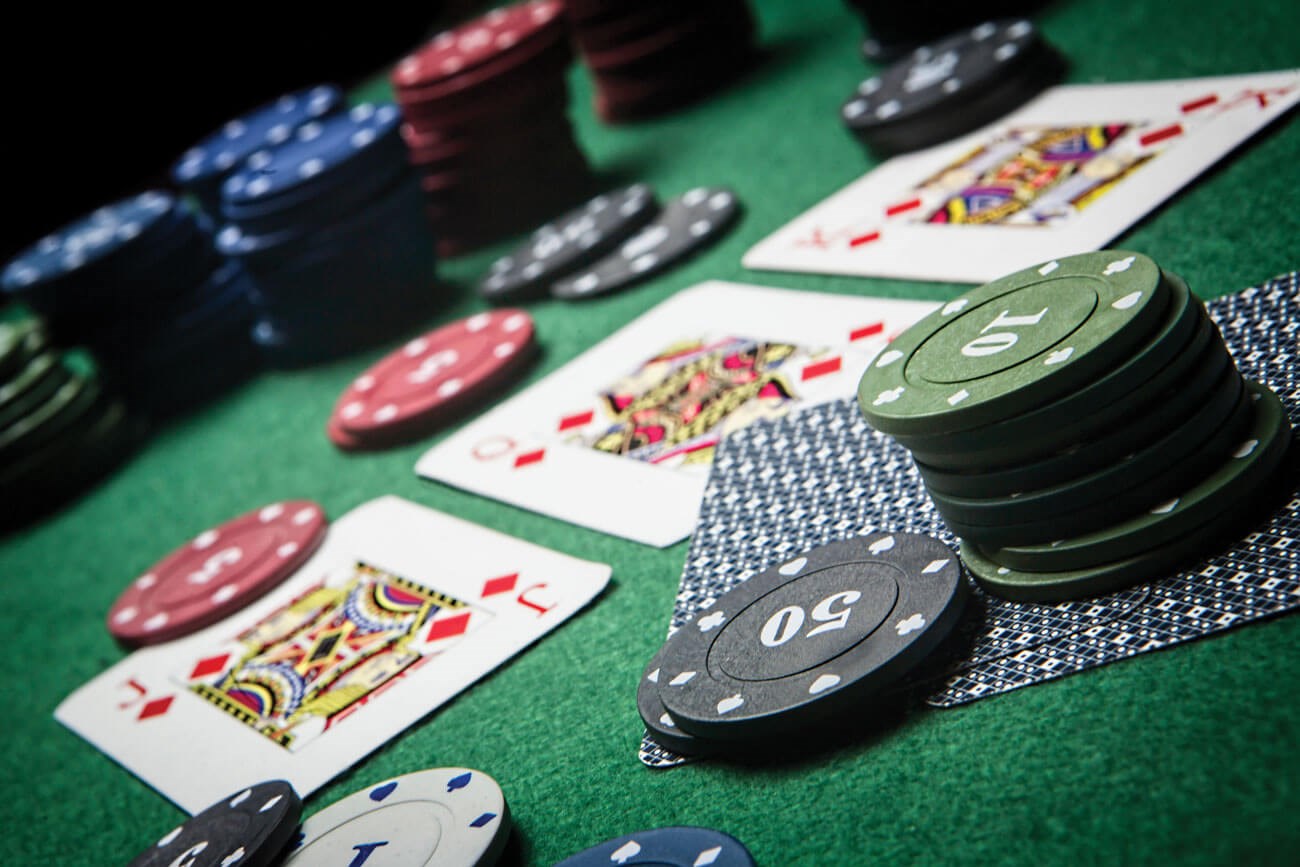
Speaking with Phoenix-based ophthalmologist and poker player, Dr Corey Hochman, Peter Cackett explores the themes of success and failure, and how the ups and downs of one’s ambition can provide an overwhelming gratitude for life.
“Money won is twice as sweet as money earned.”
Eddie Felson, The Color of Money (1986)
In sixth form at high school in the late 80s, the main options for lunchtime recreation for the science geeks were programming one of the two BBC Micro computers or playing poker. Given computer programming has always been a mystery to me, I chose to join the games of five-card stud poker. Unfortunately, I wasn’t particularly good and terrible at bluffing. That sixth form year was the sum total of my poker playing career, but despite making a loss it was great fun, and I had always thought about maybe resurrecting it.
It was with delight therefore that I discovered that Dr Corey Hochman is not only a board-certified comprehensive ophthalmologist working in Phoenix, Arizona, but also an accomplished poker player and highly ranked in the World Series of Poker – the longest-running, richest and most prestigious gaming event in the world. I set about arranging an interview with him to find out the secrets behind the poker scene, if his poker playing has helped him in his career as an ophthalmologist and whether he could provide any tips on making it big in poker. Through another ophthalmologist friend in Phoenix, we were connected and met virtually over Easter weekend.
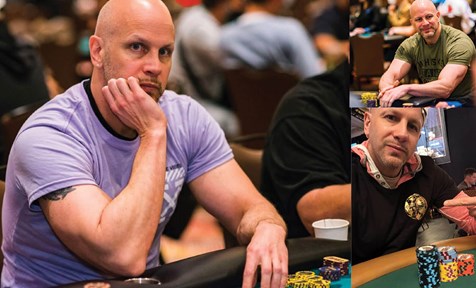
Images left and top right: © Joe Giron - WPT Lucky Hearts Poker Open Season S20
Corey grew up in Illinois and at school was both a chess player and competitive swimmer. He studied a lot and describes his former self as ‘a real mama’s boy’. It wasn’t until he went to Rice University in Houston to study Biology as an undergraduate that he discovered a passion for poker. He would meet up with a bunch of guys and they would get together in the evenings to play cash games, each player bringing 20 or 30 bucks.
"Real life consists of bluffing, of little tactics of deception, of asking what is the other man going to think I mean to do"
Since then, poker has become Corey’s first love in life, and he is not alone. As part of my preparation for the interview I read The Biggest Bluff (2020) by the psychologist Maria Konnikova (who Corey has in fact played against), which narrates the year she spent with the American poker professional Eric Seidel, learning how to play the game. In it she describes the famous Hungarian-American mathematician and physicist John von Neumann, who along with Oskar Morgenstern wrote the classic book Theory of Games and Economic Behavior, first published in 1944 [1]. The inspiration for the text was based on one single game, poker, which von Neumann loved, and this was because it combined the elements of both skill and chance that mirrored real life. In the book, von Neumann writes: “Real life consists of bluffing, of little tactics of deception, of asking what is the other man going to think I mean to do, and that is what games are about in my theory.”
I asked Corey what it is that he really loves about poker. He agreed with von Neumann and further explained: “There is the intellectual aspect of trying to out-think other people but there is also something about that gambling aspect too, where the neurotransmitters in your body are going up and down. During the game you experience constant enjoyment and excitement from things like never knowing what cards you are going to get and having your heart racing when you are bluffing. You can play great and keep losing but once in a while you are going to hit, and when you do, it feels so good.”
Corey, for the most part, has been self-taught in poker. Like many players he has read multiple texts on the subject, none of which have helped very much. However, in 2015, he came across the book The Poker Tournament Formula by Arnold Snyder, which at the time no poker player really valued or took seriously. Corey summarised the advice in the book, which is essentially “if they check to you, you bet, and if they check to you again, you bet again.” He continued, “after reading the book, it changed something in me, and I started winning. I reached several TV final tables on the World Poker Tour and felt like, wow, I can’t be beat. I got a third, a sixth and a ninth. I was just following a simple technique which was mostly bluffing.”
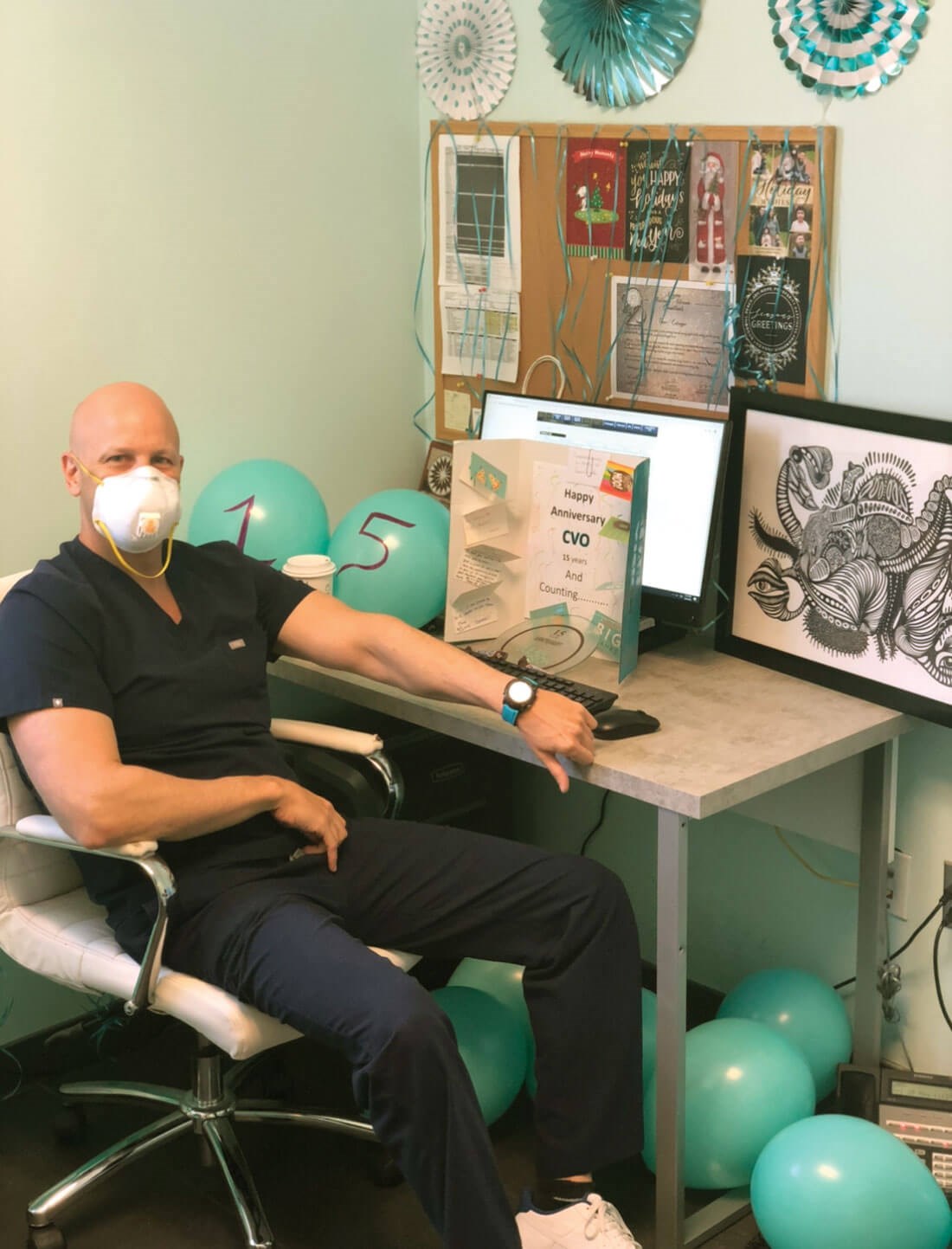
Taking an unusual break from work during Covid-19.
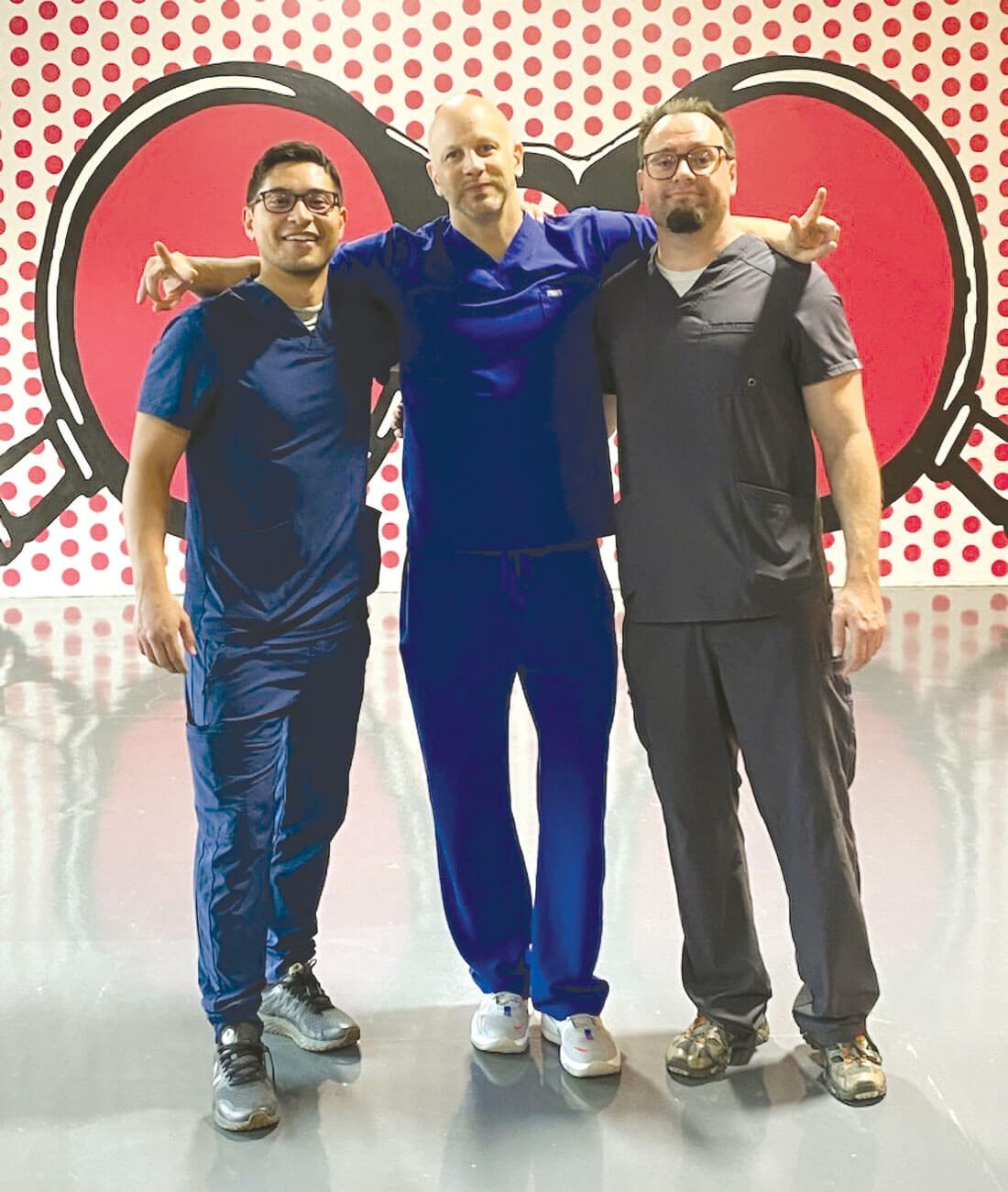
Corey with his work colleagues at an office event.
Following these successes around 2015/2016 he then described a period where the game changed; the players got better, behaving like computers, and everyone became really good. Subsequently, he lamented that he has “sucked” for the last five or six years. This all changed recently when he hired a poker coach.
“Five months ago, I was at a tournament and at one of the tables I ran into someone I know who is an amazing player. We started chatting and I told him, ‘Man, I’ll be honest with you, I’ve been losing for years and I’ve lost a lot of money playing poker, over a million dollars, and that’s with all the wins included, and it sucks.’ He replied that although he doesn’t normally take on anyone, he would be happy to help me.”
Corey described his mentor as “a maths genius” and ranked about 50th in the world at poker and his coaching involves a lot of mathematics training and advice on which hands he should be betting on. For the past few years, whilst he has “sucked” at poker, he has been a “tight passive” player, which means he played few hands and didn’t bet very much. He now describes himself a “loose-aggressive” or even “loose hyper-aggressive” player, playing many hands and betting big and much more often. He’s delighted, as ever since he teamed up with this coach his game has pretty much returned to where it was in 2015.
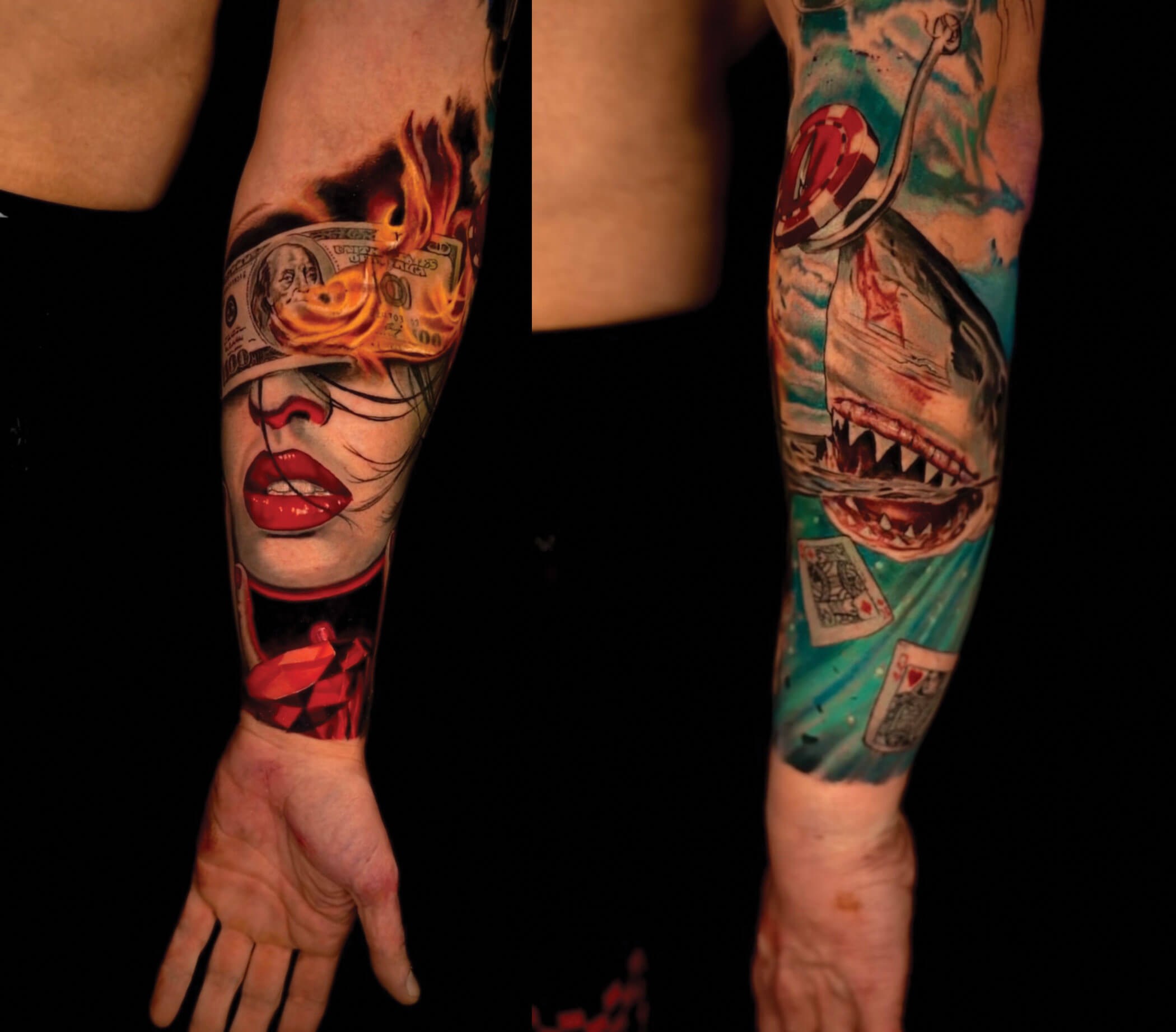
Poker tattoos: ‘Blinded by money’ and ‘The ravenous poker shark’.
Corey plays all different variants of poker but for him the one he plays most often is Texas hold ’em as these tournaments are the most prestigious events and the ones which any serious poker player wants to win.
There are two ways of playing poker: online or face to face. Corey avoids playing online for two reasons. Firstly, face to face is more fun, especially with the excitement of a tournament. Secondly, Corey explained, “online play is bullshit. They cheat. It is way under talked about and underappreciated but it’s disgusting. The players cheat as they can multi-count and have other players at the same table telling them their cards. On top of that there are websites that cheat and some have also been caught cheating. I’ve seen stuff online that is so ridiculous that there can’t be any other explanation than cheating. In my mind they’re all cheating and I don’t trust any of them.”
I reminded Corey that in Maria Konnikova’s book she initially gets lots of practice in poker by playing online and he confirmed that this is indeed a good method, but you will probably lose money. In fact, his current coach has suggested that he does this, but advises him not to play any games over $20 because otherwise he would just be throwing his money away.
We then moved on to discussing poker tells, which are subtle changes in a player’s behaviour or appearance which can give clues to the strength of the hand they are holding and whether or not they are bluffing. In the movie Rounders (1998), which narrates a story in the underground world of high-stakes poker, the character Teddy KGB (John Malkovich) has a tell where he eats an Oreo cookie if he has a winning hand. I asked Corey if the secret to winning at poker is reading other players’ tells. Corey finds that when he invests energy into trying to read tells he ends up playing poorly as it is far too tiring. “It’s more exhausting than cataract surgery,” he explained. “I don’t even bother anymore.”
I then asked Corey what skills are needed to be a successful poker player and he explained: ”It is being good at maths and also having guts. It is also being willing to fold when you think you are beat [2].” The last piece of advice is also related by the character Jo in Rounders: “Mike, I learned it from you. You always told me this was the rule. Rule number one: throw away your cards the moment you know they can’t win.”
Corey prepares for each poker tournament in the same way that he prepares for a theatre list, by getting a good night’s sleep, eating a good breakfast and working out, as in doing so he finds he plays so much better. He also wears a hoodie the whole time to cover his face because when he plays, he is bluffing so much and finds that he experiences far too much anxiety trying to cover his face without it.
To play in the World Series of Poker, Corey explained that there are very few events that you are required to qualify for, and for 99% of them all you have to do is turn up and pay the fee. As Corey said, “anybody can play, anybody can win. You could become the next champion tomorrow, even if you’ve never played before.”
He usually plays poker in Las Vegas but has travelled the globe pursuing this game including China, Mexico, Spain, France and Germany. His current rating on the Global Poker Index (GPI), which ranks the 644,000 active poker players around the world, is 796th, which puts him in roughly the top 0.1% of players. His highest ever ranking in 2015 was 107th and his total poker winnings at the time of the interview were approximately $1.7 million, although, as he informed me, the GPI does not record his losses which were even greater. Up until his recent change in fortune with the successful coaching, his ophthalmology practice has effectively been bank rolling his poker playing.
His most enjoyable victory in poker was in 2016 at a $1600 buy-in tournament. He described waking up on a Saturday morning with his girlfriend at the time and went on to Facebook and noticed a poker-playing friend of his had posted that he was playing at an event in Las Vegas with a photo showing the stack of chips in front of him. Corey was in Phoenix, but he and his girlfriend spontaneously decided they would go as well and jumped on a plane to Las Vegas arriving at the tournament mid-afternoon and he bought in. He made it through to the second day and eventually the final table, where ultimately he achieved second place in the tournament and won $151,000.
Corey then went on to describe the aftermath. “The crazy thing was I didn’t expect to go to that event, but it finished at midnight on the Monday in Las Vegas and I had to operate at 07:00 the next morning in Phoenix. I had seven hours to get there and I needed to sleep. There were no more flights and no Ubers would take us. Then, on our eighth try, a man pulls up with a van and agreed to take us if his wife could come, too. So, we picked up his wife from their home, they filled a cooler with sodas and I paid him $1000 to drive us all the way back to Phoenix. I slept in the back of the van and made it to work in time for surgery which was pretty awesome.”
I asked Corey if there are any translatable skills from poker playing to ophthalmology and he informed me: “Actually, not really. In poker playing I want to throw all caution to the wind, whereas in ophthalmology I am the most OCD guy around, super careful and risk averse.” However, in a similar fashion to the way he reflected after a cataract theatre list, at the end of each poker game Corey will write down all his hands and analyse each one in detail. “Sometimes after a hand, I’ll look back and I think, I really sucked there, I had pocket aces and I lost, I should have raised more. I do that a lot.”
I was interested to know what tips Corey might have for anyone starting out in playing poker and hoping to become successful. His advice was that pretty much nobody makes it in poker. “You need to be in the top 200 in the world to make a real living from poker. Even if you study, there are so many things to study, you don’t even know if you are reading the right stuff. Everybody reads the same books and goes on the same courses. How are you going to be better than the next guy?” However, Corey believes that he has lucked out and struck a gold mine with his current coach who is really improving his game. His top tip for poker playing though is: “Don’t get started.” but, if you are set on playing, he advises: “Bluff a lot, lot, lot. If you think you’re bluffing too much, bluff some more.”
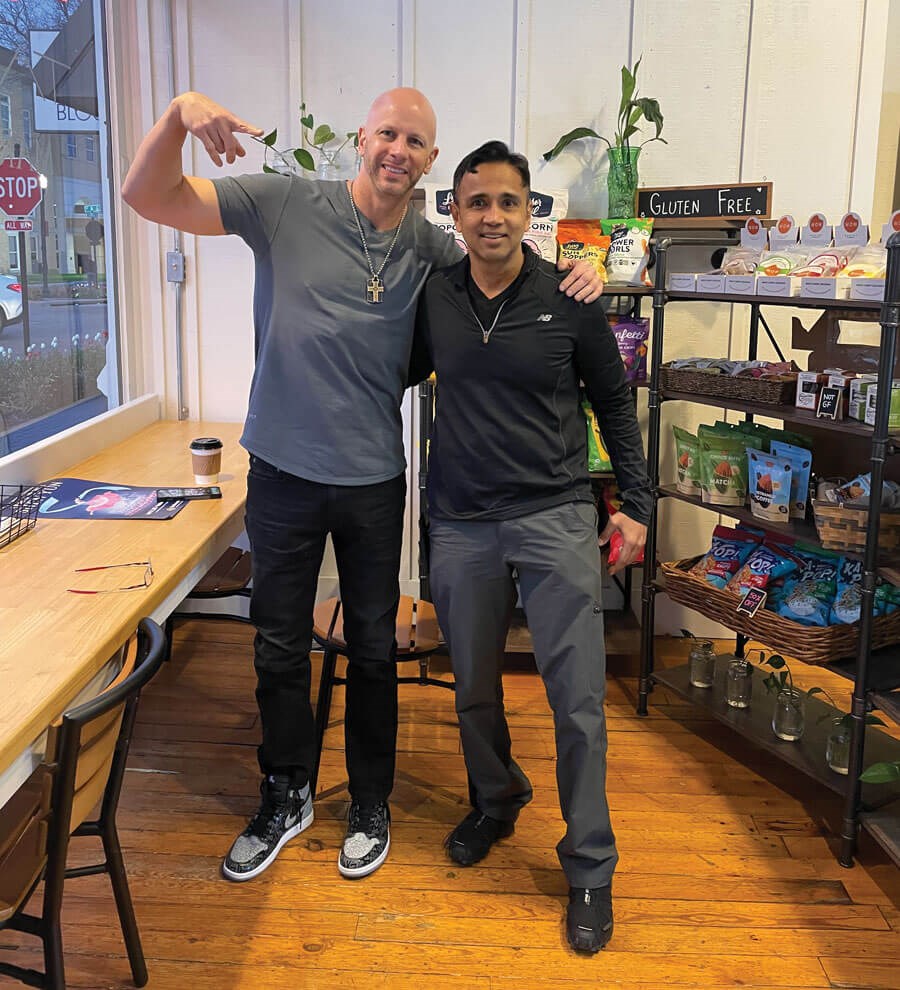
Corey with his childhood doctor friend, Stone Thayer.
With regards to Corey’s medical career, following majoring in Biology in Houston, he subsequently gained his MD at the University of Illinois College of Medicine in Chicago, and it appears medicine is something of a family tradition with many of his relatives being doctors. He went on to pursue a career in ophthalmology and attended Bronx-Lebanon Hospital in New York for his residency. Again, this specialty seemed to be the natural choice as he has a brother, uncle and cousin who are all ophthalmologists.
After residency, Corey initially moved to North Scottsdale in Phoenix to work for another ophthalmologist. This relationship only lasted a week though and he decided to set up on his own in Phoenix West Side. His business suddenly went from seeing 10 patients per day to being so busy on his first day in his new business, that every chair in his waiting room was filled.
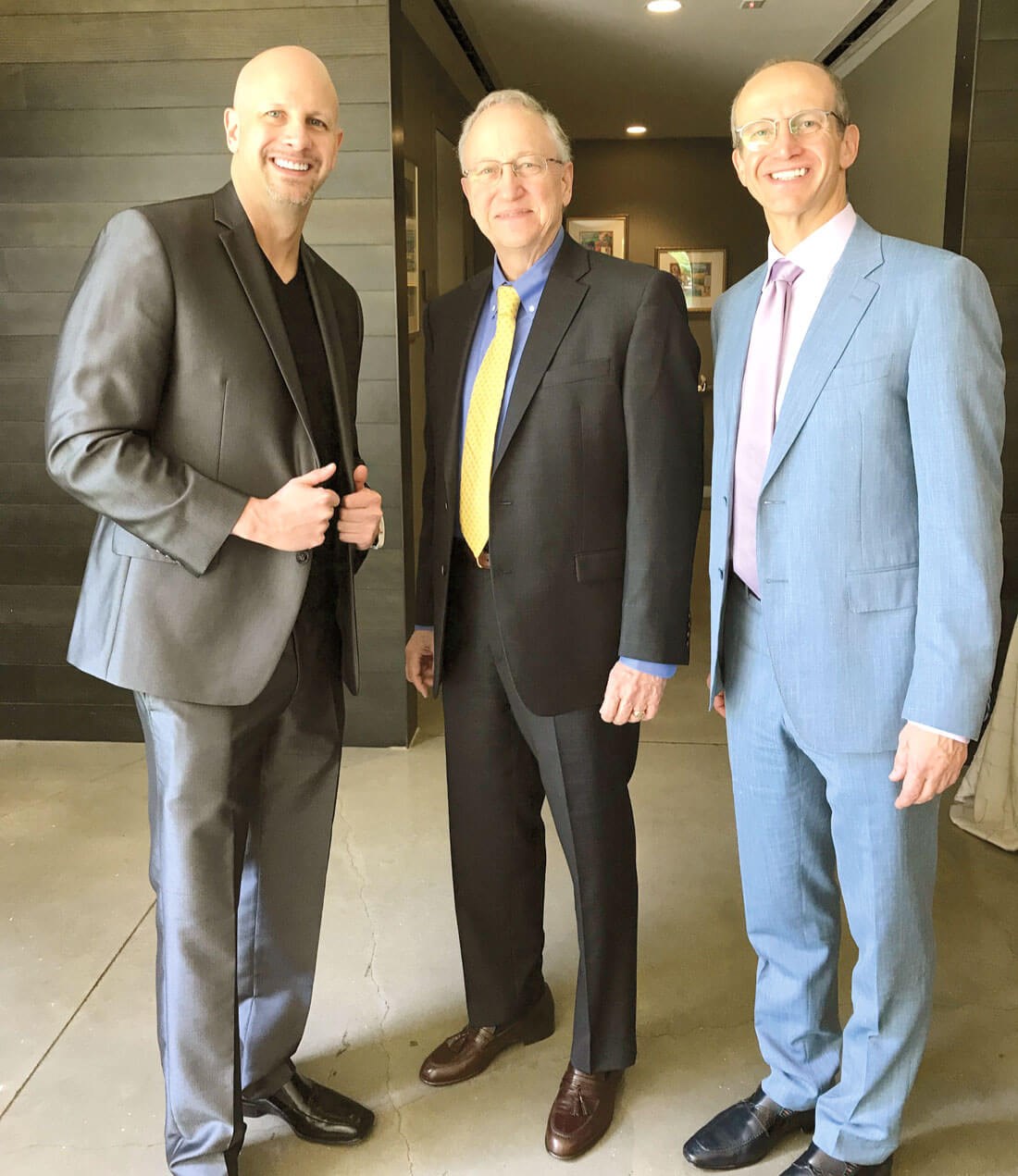
Corey with his dad and brother.
In his practice, he sees predominantly Latino patients, which is where being fluent in Spanish comes in useful, having mastered the language during his training in New York. He is a general ophthalmologist, doing “anything and everything [he] feels comfortable and confident with”, which includes cataract surgery, retinal laser, Avastin injections and the ‘make’ surgeries such as blepharoplasties. The most common procedure which he has performed is pterygium excision, having done in excess of 15,000, since these occur frequently in the Latino population.
He has also recently taken up abdominal liposuction which he is really enjoying, although finds standing up for long periods performing this surgery after years of sitting down doing ophthalmic surgery quite exhausting. His career aim now though is to make the list of top 100 poker players within the next five years and become so successful at the game that he can earn a living from it, allowing him to retire from ophthalmology and move to Las Vegas and play poker full-time.
"I do know that one thing is for sure, people talk about winning the lottery as being like one in a billion, but just the fact that we are here on this Earth, […] all of us have won the lottery"
I asked Corey what advice he would give his 17-year-old self. He replied: “Don’t care what people think and do what you want. You create your world. Don’t listen to any outside influences or even what your parents think because you create your own reality. Be confident enough in what you believe because that’s who you are. Go with your values, your morals and your life dreams.”
Corey’s advice for anyone embarking on a career in medicine is firstly that whatever career you end up in, learn it well. “You better learn your stuff because people are going to rely on you. You don’t want complications; you want to give them good outcomes and have happy patients.” Secondly, from a financial and life perspective, he advises to invest in yourself. “The best thing you can do is work for yourself rather than be someone else’s workhorse.”
I was interested to know what the headline track on Corey’s Spotify playlist for life would be. With his background in poker playing, I suggested that Lady Gaga’s Poker Face or Abba’s The Winner Takes It All might be possibilities. However, for Corey, it had to be Elvis Presley’s Viva Las Vegas. “I love that city,” Corey confirmed.
Finally, I asked Corey what he considers to be the meaning of life. He replied that for him on an individual level it is “to feel happy and fulfilled”. He elaborated to say: “I do know that one thing is for sure, people talk about winning the lottery as being like one in a billion, but just the fact that we are here on this Earth, and able to have our five senses, wake up, breathe the air and experience food and friends and love, all of us have won the lottery. And every day we wake up, we win the lottery.”
With that we concluded the interview. It was late night in Phoenix and Corey was heading for his bed. The day was just starting in Scotland, and I headed out with my dog Rosika for a walk in the spring sunshine with the countryside coming to life again, invigorated from the warmth and positivity emanating from my chat with Corey. As I looked around, taking in my surroundings with the dog scampering off into the trees, I started to reflect on our discussions and found myself fully agreeing with Corey’s wise counsel that even though sometimes it may not feel like it, every day we wake up, we do indeed win the lottery.
Postscript: The ARVO poker ghost of New Orleans
Shortly after this interview, I was fortunate to be able to travel to New Orleans for ARVO 2023 to present a paper on intravitreal injections. On the final evening, following a day at the convention centre, a group of us headed for dinner to Muriel’s restaurant on Jackson Square in the French Quarter, also known as the Vieux Carré, which is the oldest part of the city and founded in 1718.
Throughout its history the French Quarter has been a melting pot of different cultures and it has had more than its fair share of fires and plagues, in particular yellow fever. It is also where the Louisiana Voodoo religion originated with the arrival of West African slaves in the early-18th century, when their traditional religions blended with the Roman Catholic beliefs of the French.
The spirits of the dead play an important part in Louisiana Voodoo and ancestral spirits are often invoked during ceremonies. With all this in mind, it is therefore of no surprise that the French Quarter is reported to be teeming with ghosts haunting its streets and buildings.
During the main course and with darkness falling outside, our waiter informed us that the restaurant also had several resident ghosts, all of which he reassured us were either friendly or at worst simply mischievous, moving objects or throwing glasses. He proceeded to describe the story of the most prominent one called Pierre Antoine Lepardi Jourdan.
On Good Friday 1788, a major fire swept through the French Quarter. Since the fire started on this holy day, the priests refused to allow the church bells to be rung as a fire alarm, and this resulted in the fire spreading rapidly such that in a matter of hours it had consumed most of the city. One of the buildings which sustained damage was that which currently houses Muriel’s restaurant. Following the fire, the property was sold by the owner Pierre Phillipe de Marginy to the protagonist of this story, Pierre Jourdan. He subsequently built a ‘dream home’ for his family.
Unfortunately, he had a penchant for gambling and on one night in 1814 he staked his cherished home in a poker game and lost. Shortly before he had to hand over the deeds to the property, he is believed to have committed suicide on the second floor of the building.
His ghost is now reported to haunt the room in which he died, which is now the Séance Lounge of the restaurant, and he is most often seen as a sparkling luminescence by looking in a mirror displayed on one of the walls . During dessert, I asked the waiter to point out where the room was. As I surveyed the lounge on my own and took a photo of the mirror, I felt a distinct presence behind me, but when I looked there was no one there. Maybe it is just that I have a suggestible mind, but it was enough for me to beat a hasty retreat to the dining area. However, if I had lingered for longer and the ghost had been able to speak to me, I imagine he would probably have said: “I should have folded!”
References
1. Von Neumann was most interested in applying his game theory methods to politics and warfare, most likely stemming from his favourite childhood game, Kriegsspiel, a chess-like military simulation. Indeed, from the start of World War II, he was convinced of the Allies’ victory, and using his game theory techniques he created a mathematical model of the conflict from which he predicted that the Allies would win.
2. There is another quote from the movies relevant to Corey’s advice here about having guts when playing which is also from Eddie Felson in the high stakes pool hustling movie The Color of Money: “You gotta have two things to win. You gotta have brains and you gotta have balls.” Corey confirms this statement is true in poker, “with balls first and brains second”.
COMMENTS ARE WELCOME




